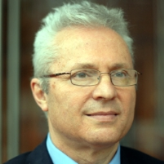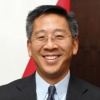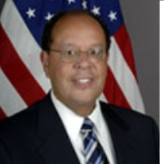Albania
Albania is situated on the Balkan Peninsula in southeastern Europe. Although it has seldom existed under its own rule, and has been occupied by foreign powers for most of its history, the country has moved from a Communist system to a parliamentary democracy, with a prime minister and president. During the Cold War, Albania’s Communist government, led by longtime dictator Enver Hoxha, was hostile towards the United States, leaving the two countries without formal diplomatic ties for more than 50 years. In the 1990s, relations between the US and Albania began to normalize. Also during the 1990s, Albania became involved in the crisis in neighboring Kosovo, a largely ethnic Albanian territory inside Serbia. Hundreds of thousands of refugees flooded into Albania from Kosovo as a result of attacks by Serbian forces and air assaults by NATO on Serbian targets. Today, Albania suffers from human rights problems, including poor prison conditions, police corruption and human trafficking. These concerns have not prevented the United States from being supportive of the country’s efforts to join NATO and the European Union.
The Albanian people are descended from a group called the Illyrians, who settled in the Balkans in 2000 BC. The Greeks arrived in the 7th century BC, trading peacefully with the Illyrians and taking control of the south (Greece still has a claim on this area today).
 Sallabanda, Aleksander
Sallabanda, Aleksander
- Table of Contents
- News
- Overview
- Basic Information
- History
- Newspapers
- History of U.S. Relations with Albania
- Current U.S. Relations with Albania
- Where Does the Money Flow
- Controversies
- Human Rights
- Debate
- Past Ambassadors
- Ambassador to the U.S.
- Embassy Web Site in the U.S.
- Comments
- Leave a comment
U.S. Ambassador to Albania

The next ambassador to the Balkan nation of Albania will be a career diplomat who has spent the balance of his career working with formerly communist nations. Donald Lu was nominated by President Barack Obama on July 25, and if confirmed by the Senate as expected, he would succeed Alexander A. Arvizu, who has served in Tirana since November 10, 2010.
Born circa 1966 in Huntington Beach, California, Donald Lu earned both Bachelor’s and Master’s degrees in International Relations at Princeton University in 1988 and 1991, respectively. Lu served as a Peace Corps volunteer in Sierra Leone from 1988 to 1990, where he helped to restore hand-dug water wells and taught health education and latrine construction.
Joining the Foreign Service in 1990, Lu served early career foreign postings as a political officer at the consulate in Peshawar, Pakistan; as a consular officer at the embassy in Tbilisi, Georgia; and as a special assistant to Ambassador Frank Wisner and then political officer at the embassy in New Delhi, India.
Lu served as special assistant to the ambassador for the Newly Independent States from 2000 to 2001, and then as deputy director for the Office of Central Asian and South Caucasus Affairs from 2001 to 2003.
From 2003 to 2006, Lu was deputy chief of mission at the embassy in Bishkek, Kyrgyzstan. Lu then served as deputy chief of mission at the embassy in Baku, Azerbaijan, including a stint as the chargé d’affaires from July 2009 through July 2010, when the office of ambassador was vacant.
In September 2009, Lu dispatched a diplomatic cable to Washington in which, quoting a prominent local politician, he compared Azerbaijani President Ilham Aliyev to the two young mafia dons of The Godfather films: the impulsive Sonny Corleone and his calculating younger brother Michael. Lu wrote that Aliyev’s foreign policy—which he characterized as based on “restraint and a helpful bias toward integration with the West” represented his inner Michael, while his “increasingly authoritarian” domestic policies channeled Sonny. He even called Aliyev’s father, Heydar, who was president for the decade prior to his son, “the ‘Vito Corleone’ of Azerbaijan.”
Lu returned to India in July 2010 to serve as deputy chief of mission at the embassy in New Delhi.
Lu is married to Dr. Ariel Ahart, a public health specialist. They have two children, Kipling and Aliya. Lu speaks West African Krio, Urdu, Hindi, Russian, Georgian and Azerbaijani.
-Matt Bewig
To Learn More:
Donald Lu Nominated as Ambassador to the Republic of Albania (Asian American Press)
morePrevious U.S. Ambassador to Albania

more
Albania is situated on the Balkan Peninsula in southeastern Europe. Although it has seldom existed under its own rule, and has been occupied by foreign powers for most of its history, the country has moved from a Communist system to a parliamentary democracy, with a prime minister and president. During the Cold War, Albania’s Communist government, led by longtime dictator Enver Hoxha, was hostile towards the United States, leaving the two countries without formal diplomatic ties for more than 50 years. In the 1990s, relations between the US and Albania began to normalize. Also during the 1990s, Albania became involved in the crisis in neighboring Kosovo, a largely ethnic Albanian territory inside Serbia. Hundreds of thousands of refugees flooded into Albania from Kosovo as a result of attacks by Serbian forces and air assaults by NATO on Serbian targets. Today, Albania suffers from human rights problems, including poor prison conditions, police corruption and human trafficking. These concerns have not prevented the United States from being supportive of the country’s efforts to join NATO and the European Union.
The Albanian people are descended from a group called the Illyrians, who settled in the Balkans in 2000 BC. The Greeks arrived in the 7th century BC, trading peacefully with the Illyrians and taking control of the south (Greece still has a claim on this area today).
 Sallabanda, Aleksander
Sallabanda, Aleksander
Comments
U.S. Ambassador to Albania

The next ambassador to the Balkan nation of Albania will be a career diplomat who has spent the balance of his career working with formerly communist nations. Donald Lu was nominated by President Barack Obama on July 25, and if confirmed by the Senate as expected, he would succeed Alexander A. Arvizu, who has served in Tirana since November 10, 2010.
Born circa 1966 in Huntington Beach, California, Donald Lu earned both Bachelor’s and Master’s degrees in International Relations at Princeton University in 1988 and 1991, respectively. Lu served as a Peace Corps volunteer in Sierra Leone from 1988 to 1990, where he helped to restore hand-dug water wells and taught health education and latrine construction.
Joining the Foreign Service in 1990, Lu served early career foreign postings as a political officer at the consulate in Peshawar, Pakistan; as a consular officer at the embassy in Tbilisi, Georgia; and as a special assistant to Ambassador Frank Wisner and then political officer at the embassy in New Delhi, India.
Lu served as special assistant to the ambassador for the Newly Independent States from 2000 to 2001, and then as deputy director for the Office of Central Asian and South Caucasus Affairs from 2001 to 2003.
From 2003 to 2006, Lu was deputy chief of mission at the embassy in Bishkek, Kyrgyzstan. Lu then served as deputy chief of mission at the embassy in Baku, Azerbaijan, including a stint as the chargé d’affaires from July 2009 through July 2010, when the office of ambassador was vacant.
In September 2009, Lu dispatched a diplomatic cable to Washington in which, quoting a prominent local politician, he compared Azerbaijani President Ilham Aliyev to the two young mafia dons of The Godfather films: the impulsive Sonny Corleone and his calculating younger brother Michael. Lu wrote that Aliyev’s foreign policy—which he characterized as based on “restraint and a helpful bias toward integration with the West” represented his inner Michael, while his “increasingly authoritarian” domestic policies channeled Sonny. He even called Aliyev’s father, Heydar, who was president for the decade prior to his son, “the ‘Vito Corleone’ of Azerbaijan.”
Lu returned to India in July 2010 to serve as deputy chief of mission at the embassy in New Delhi.
Lu is married to Dr. Ariel Ahart, a public health specialist. They have two children, Kipling and Aliya. Lu speaks West African Krio, Urdu, Hindi, Russian, Georgian and Azerbaijani.
-Matt Bewig
To Learn More:
Donald Lu Nominated as Ambassador to the Republic of Albania (Asian American Press)
morePrevious U.S. Ambassador to Albania

more







Comments